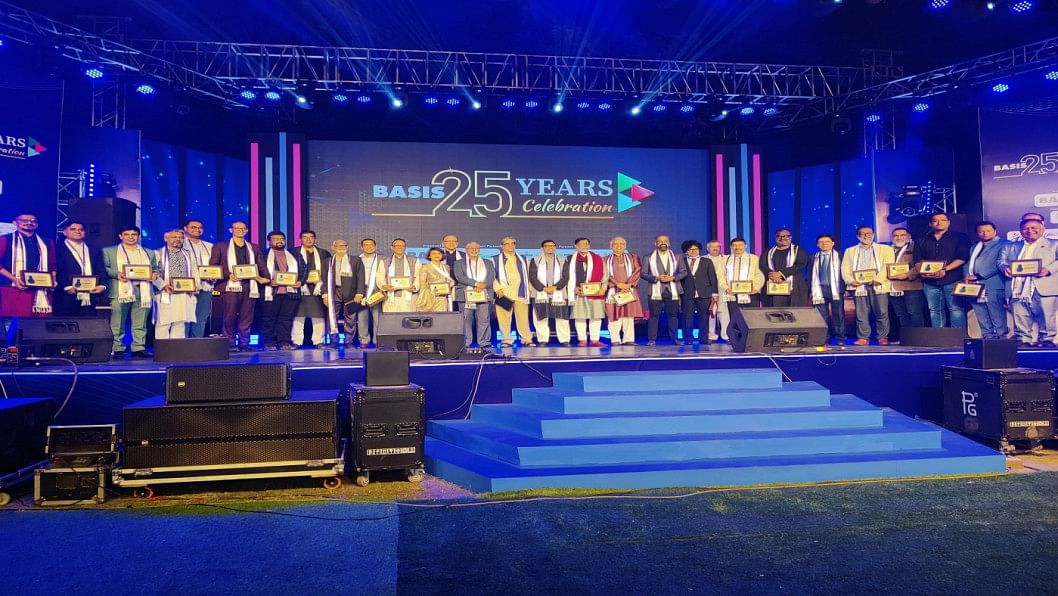Software and ITES provider urge for extension of tax exemption until 2031

Software and IT Enabled Service (ITES) providers yesterday urged the government to extend the income tax exemption applicable to them by six years until 2031 in order to help the nation achieve its vision for a Smart Bangladesh by 2041.
At present, the government offers tax breaks to software and ITES sector entrepreneurs.
But the privilege is going to expire on June 30 this year, Russell T Ahmed, president of the Bangladesh Association of Software and Information Services (BASIS), said during the national trade body's 25th-anniversary ceremony held at GreenVill Outdoors in Dhaka.
BASIS began its journey in 1998 with just 18 members. Today, it has nearly 2,500 members who play a role in the development of local software and IT services, expansion of access to international markets, and promotion of digital development.
Ahmed added that BASIS had made great strides towards social and economic development through technology-based innovation, making greater use of the benefits of the digital economy.
"ICT is the nucleus of the Smart Bangladesh vision. From agriculture, manufacturing, trading to education, all these sectors will have to implement ICT solutions to become smart within 2041," he said.
Ahmed said the current income tax exemption has been instrumental in propelling Bangladesh towards its digital aspirations.
"Exemption until 2031 would significantly facilitate the journey towards a Smart Bangladesh. Furthermore, offering tax incentives and streamlining the enlistment process for prominent IT enterprises in order to lure recent graduates would further incentivise growth and innovation in the sector," he said.
"The competitive edge of the ICT sector, unlike other industries, relies solely on human resources possessing global and future-oriented ICT skills," he stressed.
The BASIS president also said the establishment of an R&D and innovation fund is vital to transitioning from a knowledge process outsourcing (KPO) and business process outsourcing (BPO) model to a product and service-oriented ICT model.
He also suggested a BASIS-led cross-country comparative study financed by government grants to assess the demand for ICT skills, and effective restructuring of the computer science education system.
"Re-evaluate and augment national ICT competencies administered by the National Skills Development Authority to align with dynamic industry requirements," Ahmed said.
BASIS said it was also targeting training initiatives, internship support, and dedicated grant funds to facilitate the transition of participants into industry-ready professionals.
Additionally, he sought the institution of a supplementary wage policy to incentivise greater female engagement in the ICT sector, alongside recommending the establishment of a dedicated grant fund to support micro and small ICT firms in recruiting fresh graduates.
"Through collaborative efforts and strategic initiatives, the nation is poised to embrace the boundless opportunities that lie ahead, ensuring a bright and prosperous future for generations to come," he said.
He said Bangladesh is embarking on a transformative journey and that the roadmap towards a Smart Bangladesh by 2041 encompasses multifaceted strategies to propel growth in the IT sector.
For example, the global export market for software and ITES is growing and is projected to register $600 billion by the end of the year. If only 3.4 percent can be captured by readying our human resources and private sector, then Bangladesh can earn more than $20 billion within a few years to come. This can be observed as a milestone achievement, especially when we are facing a crunch in our forex reserve.
Addressing this potential, to ensure our comprehensive growth in exports, the BASIS president suggested a framework termed "3 by 3".
"This approach involves conducting research to identify target markets and products, promoting products through marketing and sales efforts, and cultivating a skilled workforce to seize growth opportunities," he said.

 For all latest news, follow The Daily Star's Google News channel.
For all latest news, follow The Daily Star's Google News channel. 



Comments